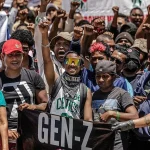At the recent United Nations Climate Summit, developing nations voiced frustration over unmet climate finance pledges. Wealthy countries promised $100 billion annually to help poorer nations adapt, but actual disbursements fall far short.
For African and Asian countries already facing rising sea levels, droughts, and floods, this shortfall has severe consequences. Nigeria, for example, needs billions in climate adaptation funding, but receives only a fraction.
Critics argue that global climate finance mechanisms are bureaucratic and favor projects that benefit donor countries. Meanwhile, small island nations like Tuvalu face existential threats as rising seas swallow their lands.
Climate justice advocates demand a new financing framework that ensures transparency and equitable distribution. Without urgent reforms, the gap between climate pledges and reality could widen, leaving vulnerable nations to bear the heaviest burdens of a crisis they contributed least to.








